Natural Remedies For Hypothyroidism: 12 Effective Treatments
Help stabilize your thyroid hormone levels with these effective kitchen ingredients.

Image: Shutterstock

Hypothyroidism may occur when the body cannot produce enough of the thyroid hormone. The condition may manifest as fatigue, tiredness, confusion, and weight gain. While a proper diagnosis and treatment are important, certain natural remedies for hypothyroidism may help you deal with it better. The thyroid hormones are important in one’s overall growth and development. Hypothyroidism is usually treated with medication. Along with that, the following remedies can also help restore your thyroid functioning. Continue reading to know more.
In This Article
Home Remedies For Hypothyroidism
1. Essential Oils
Many people recommend various essential oils for the thyroid, but no direct medical proof supports the recommendation. However, you may try the below essential oils to see some potential relief.
a. Rosemary Oil
Rosemary oil exhibits strong anti-inflammatory properties
(1). Hence, massaging it on the thyroid pressure points during acupuncture may help regulate the secretion of thyroid hormones.
You Will Need
- 3-4 drops of rosemary oil
- 1 tablespoon of coconut oil
What You Have To Do
- Mix three to four drops of rosemary oil with a tablespoon of coconut oil.
- Apply this mixture to the thyroid acupressure points ( the base of the throat, the medial aspect of the lower leg, and below the feet).
- Massage gently for a couple of minutes and allow the oil to be absorbed by the skin.
- Alternatively, you can also add a few drops of rosemary oil to your bath and soak in it for 15 to 20 minutes.
- You can also apply rosemary oil to your scalp if your hair is thinning as a result of hypothyroidism.
How Often You Should Do This
Do this once a day.
b. Frankincense Oil
Frankincense oil exhibits anti-inflammatory properties. It also stimulates digestive and brain functions (2). Thus, frankincense oil may help treat symptoms of hypothyroidism like inflammation and stomach problems.
You Will Need
- 3-4 drops of frankincense oil
- 1 tablespoon of coconut oil
What You Have To Do
- Mix a few drops of frankincense oil with coconut oil.
- Apply the blend to the base of the throat, below the feet, and other acupressure points for thyroid.
- Apply this mixture to any topical inflammation as well.
- You can also consume a drop or two of food-grade frankincense oil.
How Often You Should Do This
Do this once a day.
Note: If one essential oil does not work within 3-4 weeks, discontinue it and try another oil. However, do not use too many at once or use them indefinitely.
2. Ashwagandha

Ashwagandha possesses anti-inflammatory, antioxidant, and antibacterial properties (3). Ashwagandha is also known to increase thyroid levels (4). Hence, it may help in balancing the thyroid hormones.
You Will Need
500 mg ashwagandha capsules
What You Have To Do
Consume 500 mg of ashwagandha capsules daily after consulting your doctor.
How Often You Should Do This
Consume this supplement 1-2 times a day or as directed by your doctor.
3. Minerals
Hypothyroidism is caused due to the deficiency of iodine and a few other significant minerals
(5). Taking supplements may restore the mineral levels in your body.
You Will Need
A well-absorbed, low potency liquid mineral supplement containing the 9 minerals (iodine, selenium, zinc, molybdenum, boron, copper, chromium, manganese, and magnesium) that are necessary for producing thyroid hormones.
What You Have To Do
Consume the liquid mineral supplement daily after consulting your doctor.
How Often You Should Do This
Consume this supplement daily. This is a long-term therapy to keep the thyroid healthy.
4. Flaxseeds
Flaxseeds
are a rich source of omega-3 fatty acid called alpha-linolenic acid (6). Anecdotal evidence suggests that omega-3s may induce the production of thyroid hormones.
You Will Need
- 1 tablespoon of powdered flaxseeds
- 1 glass of milk or fruit juice
What You Have To Do
- Add a tablespoon of powdered flaxseed to a glass of milk or fruit juice. It is best to grind frozen flaxseeds immediately before using them.
- Mix well and consume it.
How Often You Should Do This
Consume this solution 1-2 times a day.
Note: Do not consume more than two tablespoons of flaxseeds daily, as consuming more flax seeds may have reverse effects. Store the seeds in a cool place as they turn rancid quickly.
5. Coconut Oil
Coconut oil contains medium-chain fatty acids (7). These may help in speeding up sluggish metabolism caused by hypothyroidism.
You Will Need
1-2 tablespoons of 100% virgin coconut oil
What You Have To Do
- Consume coconut oil daily, either directly or by adding it to your foods.
- You can also substitute your cooking oil with coconut oil. However, non-heated coconut oil is more beneficial.
How Often You Should Do This
Consume this 2-3 times a day.
6. Ginger
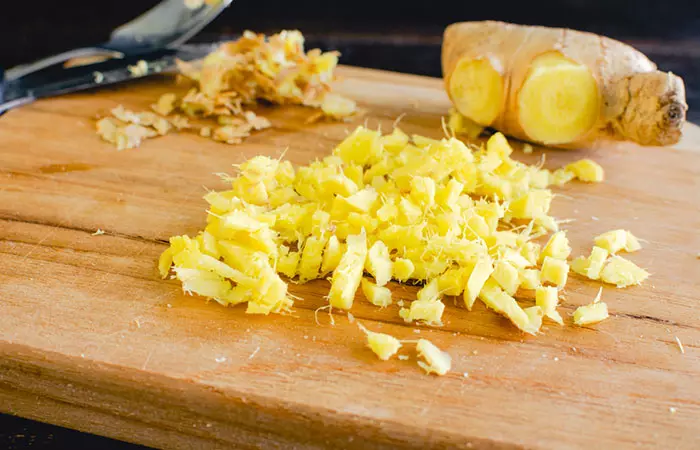
Ginger exhibits powerful anti-inflammatory properties (8). These properties may help relieve hypothyroidism and its symptoms.
You Will Need
- An inch of ginger (finely chopped)
- 1 cup of water
- Honey
What You Have To Do
- Add an inch of ginger to a cup of hot water and let it steep for 5 to 10 minutes.
- Allow it to cool down.
- Add a little honey to it and drink it immediately.
- Alternately, you can add minced ginger to the foods or simply chew on small bits of ginger.
How Often You Should Do This
Do this 3 times a day.
7. Kelp
Kelp is a kind of seaweed that is rich in iodine (9). Supplementing with kelp may help in inducing the production of thyroid hormones (10).
You Will Need
Kelp Supplement with 150-175 micrograms of iodine
What You Have To Do
Consume this kelp supplement after consulting your doctor.
How Often You Should Do This
Consume this once a day for a few weeks or months.
8. Guggul
Guggul is a resin produced from the guggul plant. The guggulsterone in guggul may help fight hypothyroidism by regulating the thyroid function and treating the symptoms (11), (12). Guggul extracts have been used in Ayurveda medicine for the past 3000 years.
You Will Need
25 mg of guggul supplementation
What You Have To Do
Consume guggul supplements daily after consulting a naturopathy doctor.
How Often You Should Do This
Consume this 3 times a day.
9. Bladderwrack
Bladderwrack is a type of seaweed that is rich in iodine (13). Thus, it may help in the herbal treatment of hypothyroidism. Fucus vesiculosus, the scientific name for this brown seaweed, is used in homeopathy to treat thyroid disorders (14).
You Will Need
- 2 teaspoons of bladderwrack herb
- 1 cup of hot water
- Honey
What You Have To Do
- Add two teaspoons of bladderwrack herb to a cup of hot water.
- Allow it to steep for 5 to 10 minutes.
- Strain and allow the tea to cool a bit.
- Add a little honey and consume it immediately.
How Often You Should Do This
Do this 2 times a day.
10. Vitamins
Vitamin B12 stimulates the function of the thyroid gland (15). Vitamin C helps fight oxidative stress (that can worsen hypothyroidism) with its antioxidant properties (16). Thus, vitamin B12 and vitamin C may help in treating hypothyroidism.
You Will Need
Vitamin B12 and Vitamin C-rich foods (leafy vegetables, fish, meat, eggs, and dairy products).
What You Have To Do
Consume these vitamin-rich foods.
How Often You Should Do This
Do this regularly.
11. Black Walnut Hull
Black walnut hulls contain vitamins and minerals like iodine, zinc, magnesium, B-vitamins, and vitamin C (17). This may help in treating hypothyroidism and its symptoms caused due to iodine deficiency.
You Will Need
- 2-3 drops of black walnut hull extract
- 1 glass of water
What You Have To Do
- Add two to three drops of black walnut hull extract to a glass of water and mix well.
- Consume this solution.
How Often You Should Do This
Do this 2-3 times a day.
12. Nettle
Nettle is a rich source of nutrients like vitamin A, vitamin B6, calcium, iron, magnesium, and iodine (18). Hence, it may help in treating hypothyroidism.
You Will Need
- 2 teaspoons of stinging nettle tea
- 1 cup of hot water
- Honey
What You Have To Do
- Add two teaspoons of nettle tea to a cup of hot water.
- Steep for 5 to 10 minutes.
- Strain and allow it to cool a bit before adding honey.
- Consume the tea while it is still warm.
How Often You Should Do This
Do this 2-3 times a day.
In addition to the natural remedies, you should also follow the thyroid diet. Given below is a comprehensive diet guide for faster recovery.
Key Takeaways
- Certain home remedies may help manage the symptoms of hypothyroidism, in addition to prescribed medication.
- The common symptoms of hypothyroidism are weight gain, dryness, improper menstrual cycle, and increased blood pressure.
- Foods rich in iodine like walnut, bladderwrack, sea kelp, and mineral supplements can improve the functioning of the thyroid gland.
- Common kitchen ingredients like coconut oil and ginger may boost metabolism and their anti-inflammatory action may combat common hyperthyroidism symptoms.
Diet Guide
Foods To Consume
- Eggs
- Meat
- Fish
- Vegetables (cruciferous vegetable can be consumed but in small amounts)
- Fruits, like bananas, oranges, tomatoes, and berries
- Gluten-free grains and seeds, like rice, quinoa, chia seeds, and flax seeds
- Dairy products, like milk, cheese, and yogurt are thyroid-supporting foods as they contain iodine.
- Water and non-caffeinated drinks
- Brazil nuts are good sources of selenium and iron, which help to maintain good thyroid function.
- Seafood and organ meat are also selenium-rich foods.
- Home-made yogurt is a good source of probiotics that help in maintaining good gut ecology.
- Eating garlic can also help to get rid of various yeast thriving in the intestine.
- For people with subclinical hypothyroidism, daily consumption of turmeric may help reduce inflammation and help alleviate the condition (19).
Foods To Avoid
- Foods that contain gluten like bread, pasta, cereals, and beer. Follow a gluten-free diet.
- Consume sugar in moderation or follow a sugar-free diet.
- Soy foods like tofu, soy milk, and soybeans.
- Cruciferous vegetables like broccoli, spinach, and cabbage, which contain goitrogensi Goitrogens are substances that are responsible for goiter. It disrupts thyroid hormone production. with thyroid blocking properties.
- Some fruits like peach, pears, and strawberries also have goitrogens.
- Stick to a caffeine-free diet. Avoid consuming alcohol as well.
- Hypothyroidism patients were found to exhibit glucose intolerance. Such people should follow a dairy-free diet(20).
If you are at risk of developing hypothyroidism or have it already, follow the holistic prevention tips listed below to avoid the recurrence of the condition.
Prevention Tips

- Get yourself screened for hypothyroidism every 5 years, typically beginning when you cross 35 years.
- Get screened during and after pregnancy
- Quit smoking.
- Avoid consuming alcohol and caffeine.
- Keep yourself stress-free.
- Drink filtered water.
- Avoid consuming deep-fried foods.
- Consume iodine-rich foods.
- Keep your weight under control.
- Do aerobic exercises, strength training, and yoga. Exercise and meditation can help by boosting your mood, relieving fatigue and stress, aiding weight loss, and increasing your energy levels.
- Good sleep is very important in optimizing thyroid function as it regulates the stress hormone cortisoli A stress hormone found in animals, often considered to be a natural alarm system. It is known as hydrocortisone when used in medication. . Sound sleep ensures hormonal balance, repairs and relaxes tissues, aids in stress management, and promotes body healing.
Hypothyroidism has become a common disorder and can be managed and controlled with the right diet and lifestyle changes. There are various causes that may lead to a drop in the secretion of thyroid hormones. Listed below are some of the major causes of hypothyroidism.
What Causes Hypothyroidism?
- Yeast overgrowth – A condition of excess yeast produced in the intestines after taking antibiotics. Yeast toxins are known to block the thyroid.
- Chlorine in drinking water may block the thyroid.
- Fluoride in toothpaste and fluoridated water may block the thyroid.
- Autoimmune disorders like Hashimoto’s thyroiditis that attacks the thyroid gland.
- Other autoimmune disorders like type 1 diabetes, multiple sclerosis, celiac disease, vitiligo, etc.
- Undergoing radioactive iodine treatment or radiation therapy for the neck.
- Certain medications like amiodarone, lithium, interferon alpha, and interleukin 2.
- Mineral deficiency: Iodine, selenium, zinc, molybdenum, boron, copper, chromium, manganese, and magnesium.
- Pregnancy
- Defect in the thyroid gland
- Damaged or dysfunctional pituitary gland
- Disorder of the hypothalamusi The hypothalamus is a component of the brain. It consists of several small nuclei that carry out a wide range of functions.
- Age (older individuals are at higher risk)
A survey conducted on 4402 participants found that the prevalence of hypothyroidism in Croatia was 10.5%. It was further noted that women had a 2.37 times higher risk of clinical hypothyroidism and a 1.58 times higher risk of subclinical hypothyroidism than men.
Several risk factors can increase the likelihood of developing hypothyroidism. Check the next section to learn more.
Risk Factors For Hypothyroidism
- Gender
Women are 8 to 9 times more likely to develop hypothyroidism than men (21).
- Age
The risk increases with age, especially in individuals over 60 (22).
- Family History
Having a family history of thyroid disorders can raise the risk (22).
- Medications
Certain drugs such as amiodarone that are taken to treat heart rhythm disorders can affect thyroid function (23).
- Radiation Exposure
Factors such as age and type of radiation exposure can increase the risk of hypothyroidism, as per one study (24).
- Pregnancy
Some women may develop temporary hypothyroidism during or after pregnancy (postpartum thyroiditis) (22).
The common signs and symptoms of hypothyroidism are listed below.
Symptoms Of Hypothyroidism

- Constipation
- Fatigue
- Depression
- Dry skin
- Weight gain
- A decrease in sweating
- Slowed heart rate
- High blood pressure
- Stiffness and pain in the joints
- Thinning and dry hair
- Impaired memory
- Menstrual changes or fertility issues
- Muscles aches and tenderness
- Sensitive and puffy face
- Prematurely graying hair
In addition to these physical symptoms, hypothyroidism can also lead to cognitive issues, such as memory problems and difficulty concentrating.
 Quick Tip
Quick TipThyroid Level Chart
The two major thyroid hormones secreted by the thyroid glands are called T3 (triiodothyronine) and T4 (thyroxine). These hormones regulate the human body’s metabolism, temperature, and also the heart rate.
Another hormone called thyroid-stimulating hormone (TSH) is released by the pituitary gland in the brain, and this hormone is responsible for controlling the secretion of thyroid hormones.
A blood test that measures the TSH levels is used to determine the status of the thyroid hormones. A high TSH level indicates a deficiency of thyroid hormones, so the thyroid must be stimulated to produce more. Normal TSH shows that the body’s thyroid hormones are in the right range. Low TSH levels show that the body is producing thyroid hormones in excess.
- Normal TSH level ranges from 4 – 4.0 mIU/L (milli-international units per liter)
- TSH levels of 2.5 or less are considered ideal, while 5 – 4.0 mIU/L is considered “at risk.”
- TSH High levels above 4 mIU/L are considered high, and below 0.4 mIU/L are considered low.
 Did You Know?
Did You Know?When hypothyroidism remains undetected and thus untreated for a long time, it may result in the following complications.
What Happens When Hypothyroidism Is Left Untreated?

- Goiter – enlargement of the thyroid gland
- Heart problems
- Mental health problems
- Peripheral neuropathy, which may result in damaged peripheral nerves
- Infertility
- Myxedema (Coma) – in rare cases
Infographic: Exercising With Hypothyroidism: Tips To Remember
Hypothyroidism is a medical condition that develops when your body can’t produce enough thyroid hormones. This can result in fatigue, weight gain, and muscle aches. A combination of diet, exercise, and treatment can help manage the condition. We have compiled a list of tips to keep in mind when exercising with hypothyroidism. Check out the infographic below to know more!
Some thing wrong with infographic shortcode. please verify shortcode syntax
A lack of thyroid hormone production in the body may lead to hypothyroidism. Classic symptoms of this condition include weight gain, fatigue, mood instability, skin and hair issues, confusion, and menstrual issues. Overgrowth of yeast, exposure to chlorine or fluoride, certain autoimmune disorders, mineral deficiencies, and even pregnancy are among the causes that may lead to an underactive thyroid. An untreated underactive thyroid may pose serious health risks, so it is essential to monitor your thyroid hormones regularly, especially if you are above 35 years or relate to one or more of the symptoms or signs of hypothyroidism. Researchers have also observed an association between Vitamin D deficiency and autoimmune hypothyroidism (25). While conventional medications and therapies are available for treating this condition, you can also apply certain home remedies to stimulate thyroid hormone production in some cases. Ginger, flaxseed, essential oils like rosemary and frankincense, mineral and vitamin-rich foods or supplements, and a few varieties of seaweed are common natural remedies that may help with hypothyroidism.
Frequently Asked Questions
How to treat hypothyroidism during pregnancy?
A TSH during pregnancy higher than 4 should be treated. The standard medical treatment is with synthetic thyroid hormones. Using minerals and one or more of the above home remedies may prevent your thyroid from becoming overworked during pregnancy so that your TSH remains normal throughout.
Which is the test used to diagnose thyroid levels?
The Thyroid Stimulating Hormone (TSH) blood test is used to determine the thyroid levels and diagnose hypothyroidism.
Can you reverse hypothyroidism?
Yes. All thyroid conditions can be treated, leading to normal thyroid function. The most common form of treatment for hypothyroidism (underactive thyroid) is taking daily hormone replacement tablets.
Is cucumber good for the thyroid?
Yes, the moderate levels of vitamins K and A and other antioxidants in cucumbers are beneficial for people with hypothyroidism as they help them hydrate the lymphatic system and detoxify the thyroid gland (26).
Is lemon juice good for hypothyroidism?
Yes. One lemon contains around 31 mg of vitamin C. The antioxidant properties of vitamin C can help treat hypothyroidism (27).
Is coffee good for the thyroid?
No, according to research, coffee may limit intestinal absorption of thyroxine, which can hinder the ability to absorb thyroid medicine (28).
How to use apple cider vinegar to regulate thyroid functioning?
Apple cider vinegar aids in hormone expression and metabolism. Consume two tablespoons of organic apple cider vinegar with a glass of warm water and a teaspoon of honey.
Illustration: Natural Remedies For Hypothyroidism And Prevention Tips
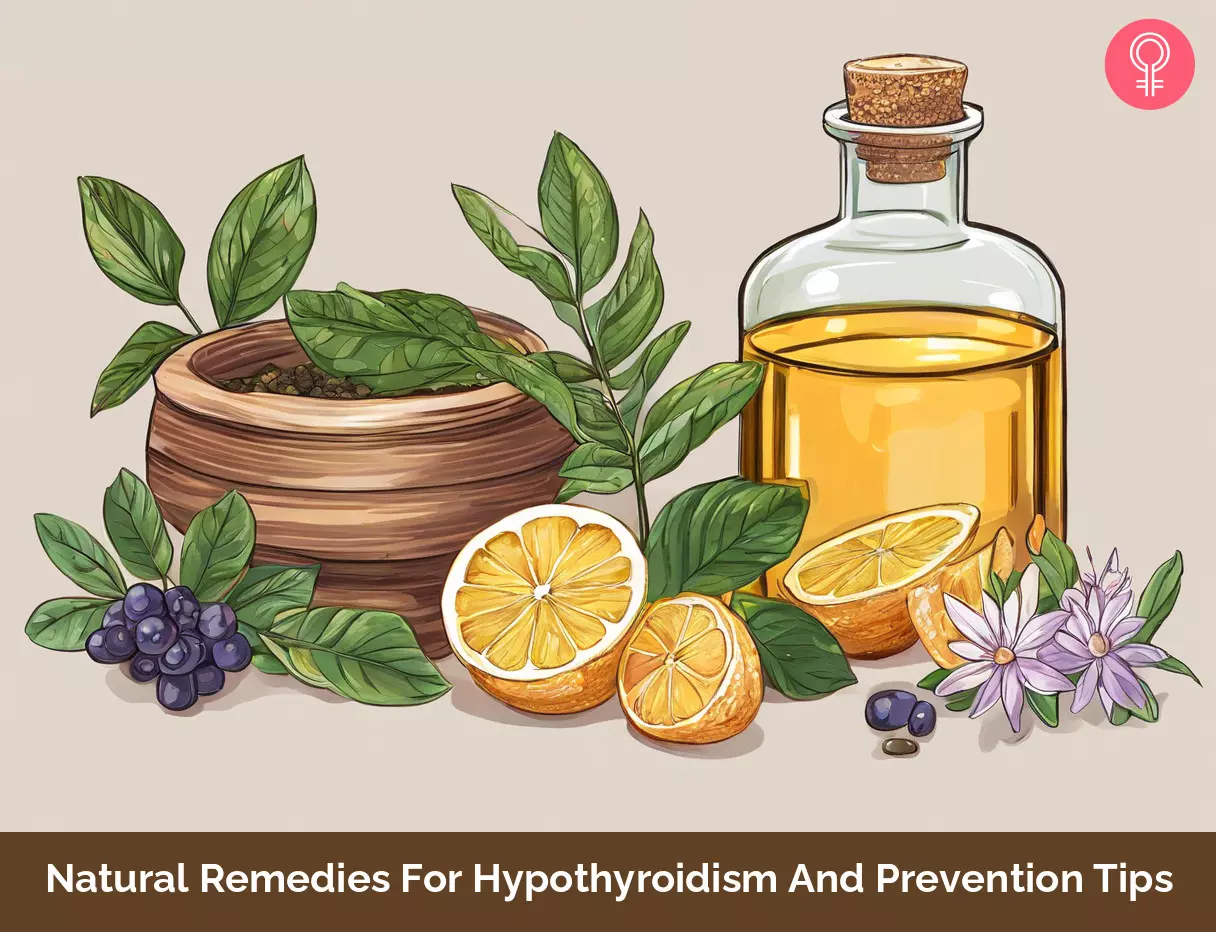
Image: Stable Diffusion/StyleCraze Design Team
.
Learn about natural remedies for hypothyroidism. Check this video for dietary and lifestyle changes to follow, and herbal supplements to take for a healthier you.
References
Articles on StyleCraze are backed by verified information from peer-reviewed and academic research papers, reputed organizations, research institutions, and medical associations to ensure accuracy and relevance. Read our editorial policy to learn more.
- Takaki I. et al. “Anti-inflammatory and antinociceptive effects of Rosmarinus officinalis L. essential oil in experimental animal models.” Journal of Medicinal Food 11.4 (2008): 741-746.
https://pubmed.ncbi.nlm.nih.gov/19053868/ - Al-Yasiry Ali Ridha Mustafa and Bożena Kiczorowska. “Frankincense-therapeutic properties.” Advances in Hygiene & Experimental Medicine/Postepy Higieny i Medycyny Doswiadczalnej 70 (2016).
https://pubmed.ncbi.nlm.nih.gov/27117114/ - Gupta Girdhari Lal and A. C. Rana. “Withania somnifera (Ashwagandha): A review.” Pharmacognosy Reviews 1.1 (2007).
https://www.researchgate.net/publication/284801881_Withania_somnifera_Ashwagandha_A_Review - Gannon Jessica M et al. “Subtle changes in thyroid indices during a placebo-controlled study of an extract of Withania somnifera in persons with bipolar disorder.” Journal of Ayurveda and integrative medicine vol. 5 4 (2014): 241-5.
https://www.ncbi.nlm.nih.gov/pmc/articles/PMC4296437/ - Tahs Yildiz Hassan Hussein Kadhem Abdul Hussein and Eham Amir Ali. “Estimation of serum copper manganese selenium and zinc inhypothyroid patients.” Journal of the Faculty of Medicine 50.2 (2008): 255-260.
https://www.researchgate.net/publication/276327657_Estimation_of_Serum_Copper_Manganese_Selenium_and_Zinc_in_Hypothyroidism_Patients - Kajla Priyanka et al. “Flaxseed-a potential functional food source.” Journal of food science and technology vol. 52 4 (2015): 1857-71.
https://www.ncbi.nlm.nih.gov/pmc/articles/PMC4375225/ - Boateng Laurene et al. “Coconut oil and palm oil’s role in nutrition health and national development: A review.” Ghana medical journal vol. 50 3 (2016): 189-196.
https://www.ncbi.nlm.nih.gov/pmc/articles/PMC5044790/ - Grzanna Reinhard Lars Lindmark and Carmelita G. Frondoza. “Ginger—an herbal medicinal product with broad anti-inflammatory actions.” Journal of medicinal food 8.2 (2005): 125-132.
https://pubmed.ncbi.nlm.nih.gov/16117603/ - Küpper Frithjof C. et al. “Iodide accumulation provides kelp with an inorganic antioxidant impacting atmospheric chemistry.” Proceedings of the National Academy of Sciences 105.19 (2008): 6954-6958.
https://pubmed.ncbi.nlm.nih.gov/18458346/ - Takeuchi Takako et al. “Treatment of Hypothyroidism due to Iodine Deficiency Using Daily Powdered Kelp in Patients Receiving Long-term Total Enteral Nutrition.” Clinical pediatric endocrinology : case reports and clinical investigations : official journal of the Japanese Society for Pediatric Endocrinology vol. 20 3 (2011): 51-5.
https://www.ncbi.nlm.nih.gov/pmc/articles/PMC3687637/ - Panda Sunanda and Anand Kar. “Guggulu (Commiphora mukul) potentially ameliorates hypothyroidism in female mice.” Phytotherapy Research: An International Journal Devoted to Pharmacological and Toxicological Evaluation of Natural Product Derivatives 19.1 (2005): 78-80.
https://pubmed.ncbi.nlm.nih.gov/15798994/ - Singh A K et al. “Response of commiphora mukul (guggulu) on melatonin induced hypothyroidism.” Ancient science of life vol. 3 2 (1983): 85-90.
https://www.ncbi.nlm.nih.gov/pmc/articles/PMC3331544/ - Stansbury Jill & Saunders Paul & Winston David. “Promoting Healthy Thyroid Function with Iodine Bladderwrack Guggul and Iris.” Journal of Restorative Medicine. 1. 83-90.
https://www.researchgate.net/publication/272145237_Promoting_Healthy_Thyroid_Function_with_Iodine_Bladderwrack_Guggul_and_Iris - Effect of Homoeopathic Medicines in Management of Hypothyroidism
https://mhmc.org.in/wp-content/uploads/2025/03/Effect-of-Homoeopathic-Medicines-in-Management-of-Hypothyroidism_updated.pdf - Jabbar Abdul et al. “Vitamin B12 deficiency common in primary hypothyroidism.” Journal of the Pakistan Medical Association 58.5 (2008): 258.
https://pubmed.ncbi.nlm.nih.gov/18655403/ - Beheshti Farimah et al. “The effects of vitamin C on hypothyroidism-associated learning and memory impairment in juvenile rats.” Metabolic brain disease 32.3 (2017): 703-715.
https://pubmed.ncbi.nlm.nih.gov/28127705/ - Cmara Cristiane Rodrigues Silva and Vicki Schlegel. “A review on the potential human health benefits of the black walnut: A comparison with the English walnuts and other tree nuts.” International journal of food properties 19.10 (2016): 2175-2189.
https://www.tandfonline.com/doi/full/10.1080/10942912.2015.1114951 - Rutto Laban K. et al. “Mineral properties and dietary value of raw and processed stinging nettle (Urtica dioica L.).” International journal of food science 2013 (2013).
https://www.hindawi.com/journals/ijfs/2013/857120/ - Turmeric use is associated with reduced goitrogenesis: Thyroid disorder prevalence in Pakistan (THYPAK) study
https://www.ncbi.nlm.nih.gov/pmc/articles/PMC4366771/ - Decrease in TSH levels after lactose restriction in Hashimoto’s thyroiditis patients with lactose intolerance
https://pubmed.ncbi.nlm.nih.gov/24078411// - Hypothyroidism in context: where we’ve been and where we’re going
https://www.ncbi.nlm.nih.gov/pmc/articles/PMC6822815/ - Hypothyroidism
https://www.ncbi.nlm.nih.gov/books/NBK519536/ - Management of Amiodarone-Related Thyroid Problems
https://www.ncbi.nlm.nih.gov/pmc/articles/PMC3474631/ - Hypothyroidism after radiation exposure: brief narrative review
https://www.ncbi.nlm.nih.gov/pmc/articles/PMC7578155/ - Association between vitamin D deficiency and hypothyroidism: results from the National Health and Nutrition Examination Survey (NHANES) 2007–2012
https://bmcendocrdisord.biomedcentral.com/articles/10.1186/s12902-021-00897-1 - The effect of vitamin A supplementation on thyroid function in premenopausal women. Farhangi MA Keshavarz SA Eshraghian M Ostadrahimi A Saboor-Yaraghi AA. J Am Coll Nutr. 2012 Aug.
https://pubmed.ncbi.nlm.nih.gov/23378454/ - Bajaj Jagminder K. Poonam Salwan and Shalini Salwan. “Various possible toxicants involved in thyroid dysfunction: a review.” Journal of clinical and diagnostic research: JCDR 10.1 (2016): FE01.
https://www.ncbi.nlm.nih.gov/pmc/articles/PMC4740614/ - Altered intestinal absorption of L-thyroxine caused by coffee. Benvenga S Bartolone L Pappalardo MA Russo A Lapa D Giorgianni G Saraceno G Trimarchi F. Altered intestinal absorption of L-thyroxine caused by coffee. Thyroid. 2008 Mar;18(3):293-301. doi: 10.1089/thy.2007.0222. PMID: 18341376.FE01.
https://pubmed.ncbi.nlm.nih.gov/18341376/
Read full bio of Dr. Bhakti Kapse
Read full bio of Shaheen Naser
Read full bio of Arshiya Syeda
Read full bio of Dipti Sharma






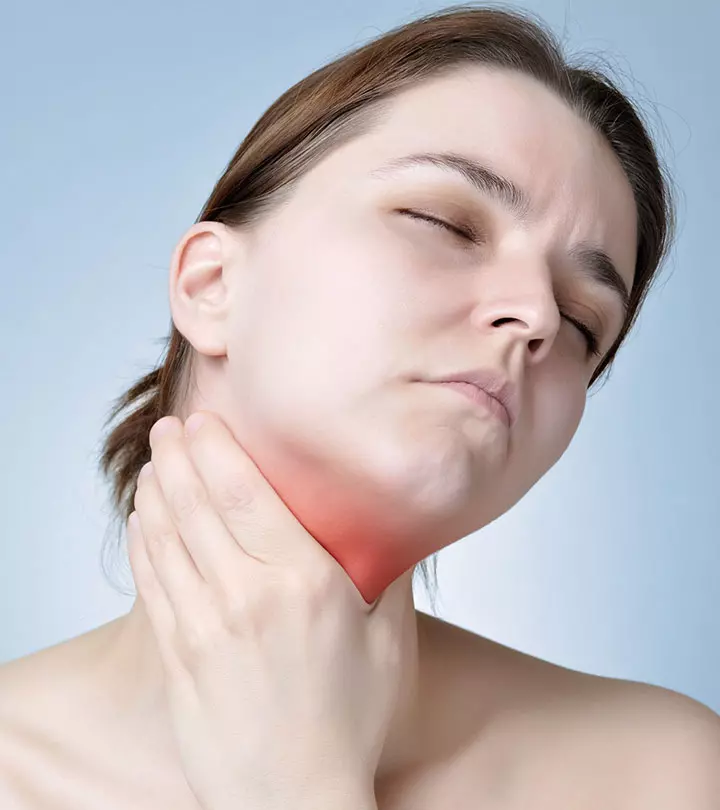


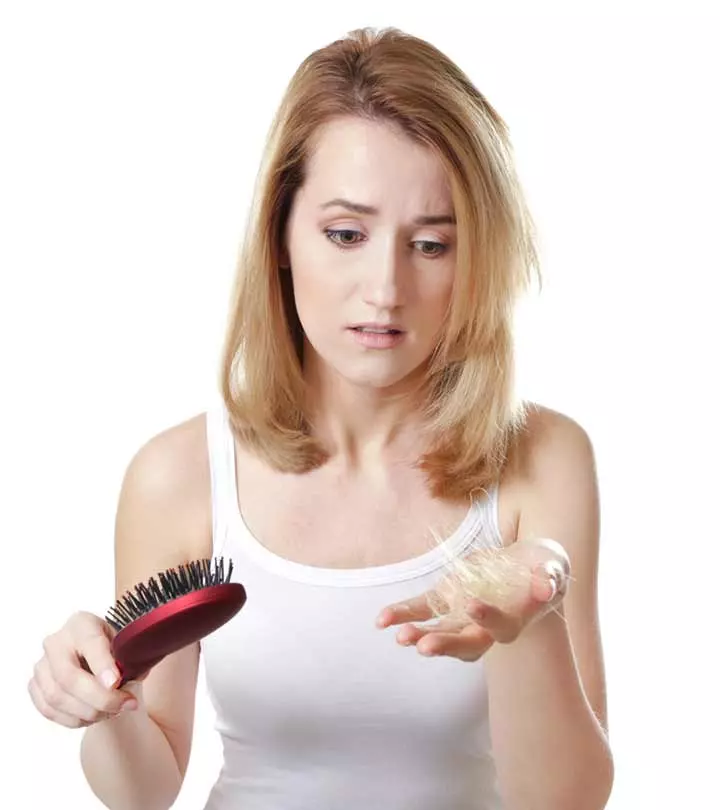

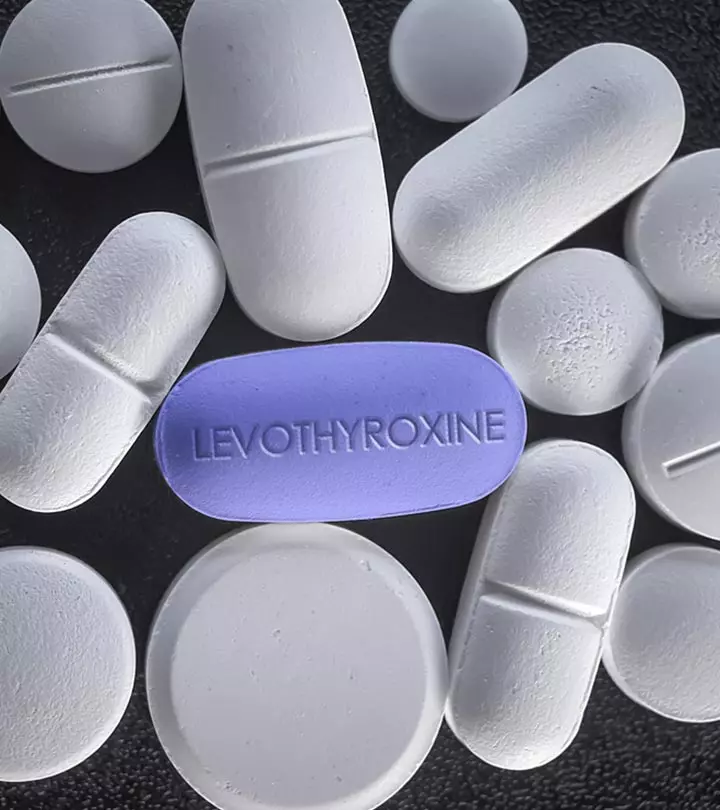
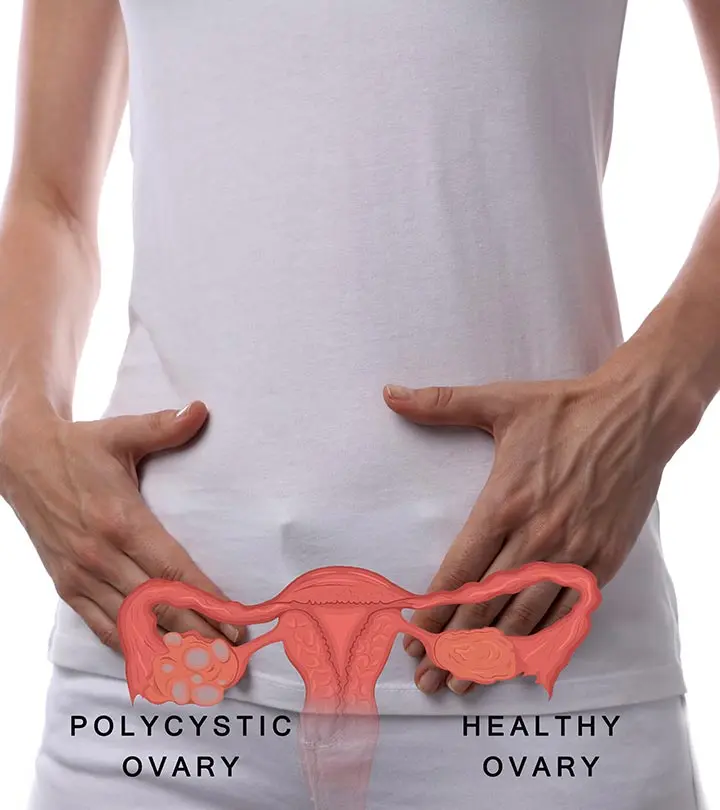


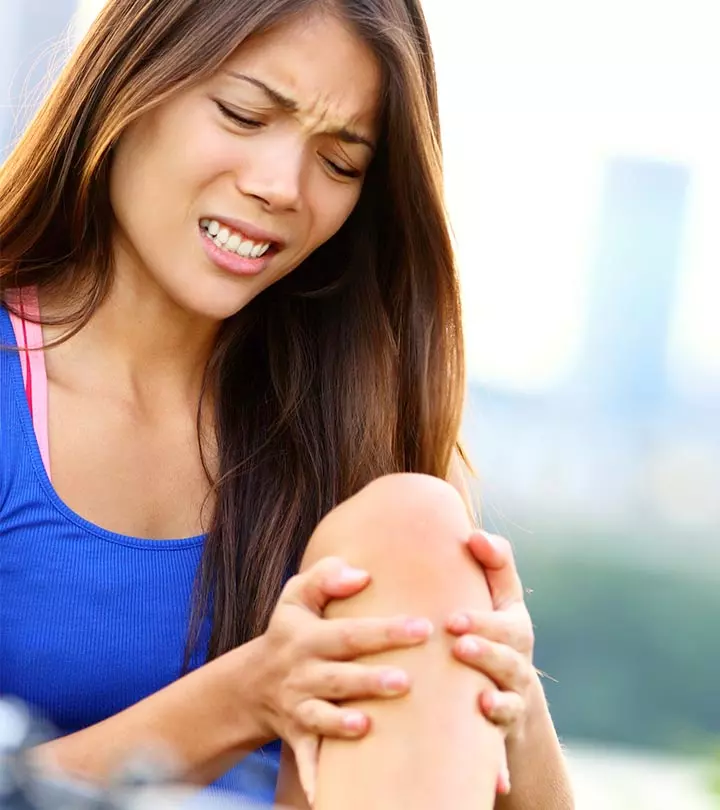




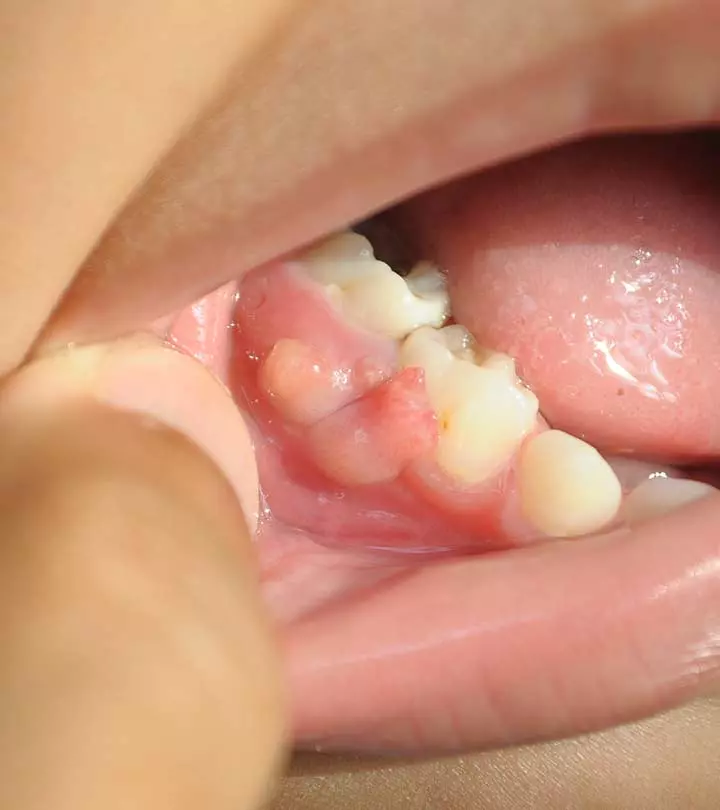

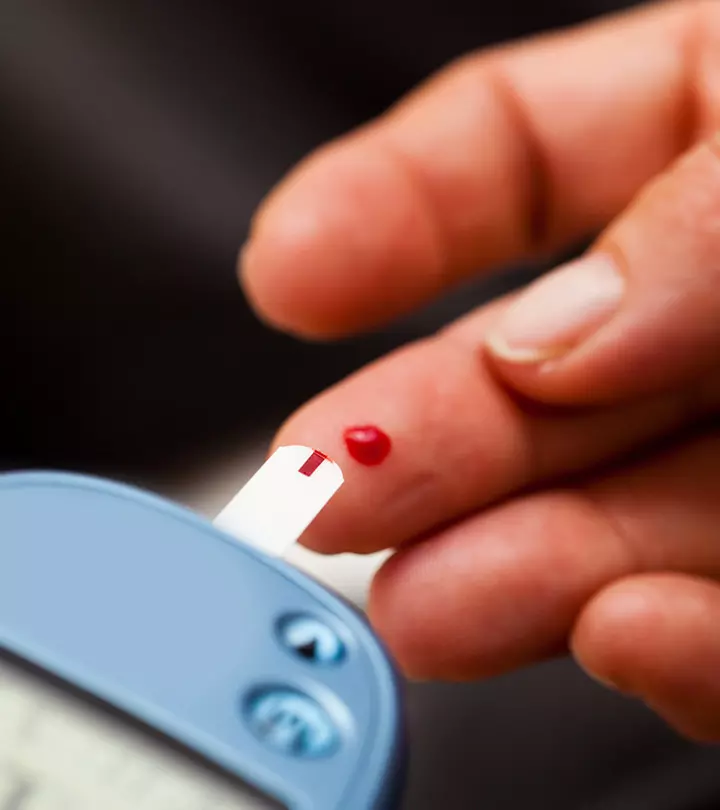
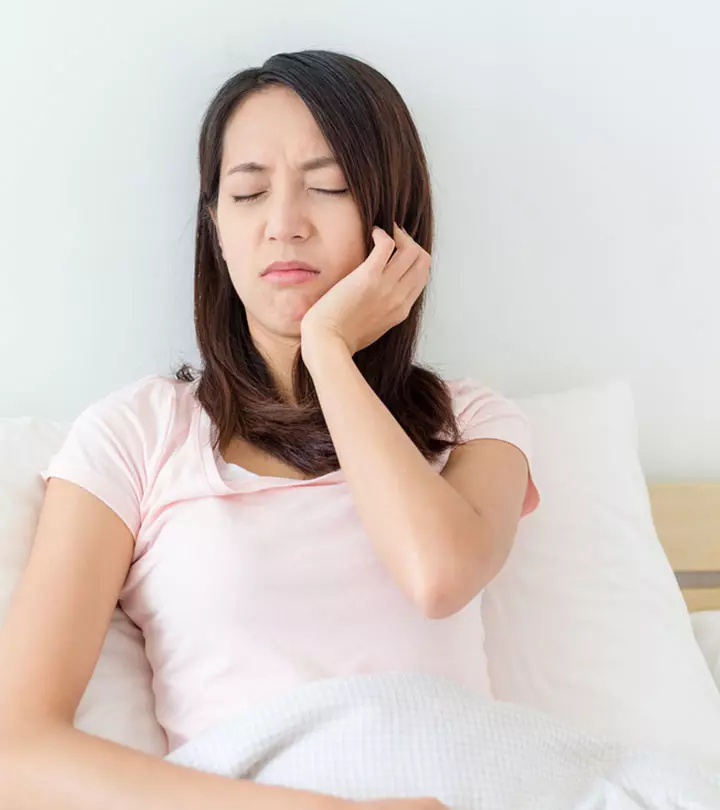


Community Experiences
Join the conversation and become a part of our empowering community! Share your stories, experiences, and insights to connect with other beauty, lifestyle, and health enthusiasts.